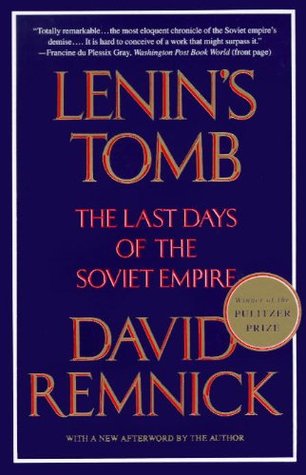More on this book
Community
Kindle Notes & Highlights
Read between
October 10, 2016 - May 12, 2019
The struggle of man against power is the struggle of memory against forgetting.
Vladimir Tokaryev was blind and eighty-nine years old by the time history caught up with him, but his memory was clear. Sitting with Tretetsky and a videocamera, he described how in April 1940 his unit of the secret police shot Polish officers in the woods outside Kalinin—two hundred and fifty a night, for a month.
“Dear Leonid Ilyich: A language is a much more ancient and inevitable thing than a state. I belong to the Russian language. As for the state, from my point of view, the measure of a writer’s patriotism is not oaths from a high platform, but how he writes in the language of the people among whom he lives.… Although I am losing my Soviet citizenship, I do not cease to be a Russian poet. I believe that I will return. Poets always return in the flesh or on paper.”
But if a people no longer believe in the future, if they can only see darkness in their common past, then they will go into a state of spiritual dystrophy, and I am not sure we can cure this. In order to inspire faith, we have to show not only the filth and the crime and the blood in our history, but also what there was to be proud of.
‘How was it possible for a Stalinist, a party careerist, to turn around and change so abruptly?’ He couldn’t answer at first. But then he said, ‘If someone has the chance finally to express himself, to speak the truth, why should he miss the opportunity?’ ”
Gorbachev delivered his speech to a national television audience and the great relics of the Communist world. Erich Honecker of East Germany, Wojciech Jaruzelski of Poland, Fidel Castro of Cuba, Daniel Ortega of Nicaragua, Milos Jakes of Czechoslovakia, Nicolae Ceauşescu of Romania, Gorbachev’s own Central Committee: they were all there to hear what would, and would not, be said about the history of the regime. Soon, all of them would fall to revolution and election—all but Castro—and in large part, the reason was this speech.
Who, after all, still believed that a new “epoch of human progress” began in October 1917? Certainly not the farmers of southern Russia humping hay on their backs while their tractors lay rusting in the mud. Who believed this was a “higher form of social organization”? Certainly not the workers and patients at the hospital in Krasnoyarsk, where the head physician said that the only way to get needles was to “scrape the rust” off the old ones and use them again.
“Without general elections, without unrestricted freedom of the press and assembly, without a free struggle of opinion, life in every public institution dies out, becomes a mere appearance, and bureaucracy alone remains active. Public life gradually falls asleep; a few dozen extremely energetic and highly idealistic Party leaders direct and govern; among them, in reality, a dozen outstanding leaders rule, and an elite of the working class is summoned to a meeting from time to time to applaud the speeches of the leaders and to adopt unanimously resolutions put to them. In essence this is the
...more
I had no admiration for the Bolshevik Revolution. I saw it as a terrific threat because of the mass of illiterates inside it who hated intellectuals. That spelled the elimination of the intellectuals.
From the sixteenth century to the end of the Romanov dynasty in 1917, there were a total of 316 inmates at Solovki. On a single night—the night of October 28, 1929—Likhachev listened to gunfire as three hundred men were executed.
“That’s why they have to be guarded day and night by the militia! They’re criminals!”
the Stalinists are going against the current, and this halo of being dissidents, strange as it seems, gives them a sort of dignity.
a Party that could not be sure of its hold on the past had to be nervous about its future.
“Other civilizations, perhaps more successful ones, may exist an infinite number of times on the preceding and following pages of the Book of the Universe,” Sakharov wrote in his Nobel Prize lecture. “Yet we should not minimize our sacred endeavors in the world, where, like faint glimmers in the dark, we have emerged for a moment from the nothingness of unconsciousness into material existence. We must make good the demands of reason and create a life worthy of ourselves and of the goals we only dimly perceive.”
The face of neo-Stalinism we are passing through is just the outward expression of the ‘uneasy forebodings’ the petty tyrants feel.
The tragedy was that by the time Gorbachev came to power there were so many broken lives: great minds lost to emigration, drink, suicide, despair, or sheer cynicism. It was a miracle, after seven decades of murder and repression, that there was any intelligentsia left at all.
the inflamed Mamedov managed to grab the microphone, shouting, “The state plan is a swindle, likewise the budget—also, of course, those reports of economic success are a pack of lies, and …” Police hustled Mamedov off the speaker’s platform and into a back alley of obscurity. Seventeen loyal legislators quickly lined up to defend Aliyev. “Who are you fighting against, Gamboi?” Suleiman Ragimov, a hack writer and deputy, cried out. “God sent us his son in the form of Geidar Aliyev. Are you then opposing God?”


